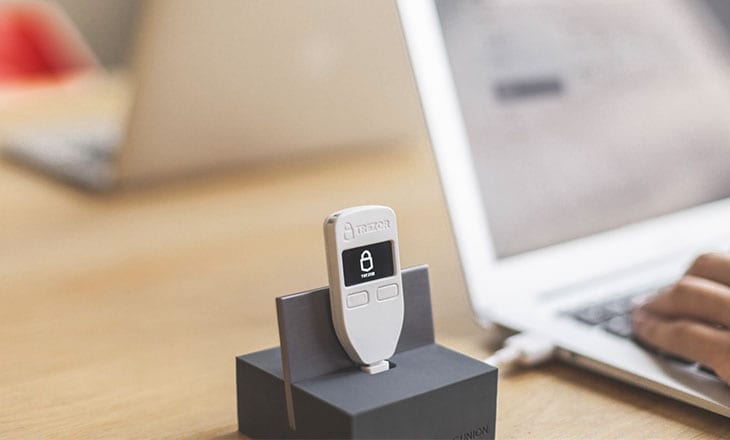As if the cryptocurrency world needed another fraudulent situation to avoid, the word is out that clever forgeries of the “Trezor One” crypto wallet have hit the market. The manufacturer of this security hardware product warned its clients on its blog last week that, “There are one-to-one replicas of their product on the market, which pose a threat to consumers.” If you are not a devoted crypto-geek, then the gravity of this announcement may be beyond your present knowledge level, but suffice it to say that one of these fakes could literally give crooks the combination to your safe of Bitcoins.
The problem, however, is not reserved only for Bitcoins. Any tokens held in safekeeping on a forged wallet device are at risk. There is an axiom in the crypto space: “If you don’t own your private keys, you don’t own your coins.” If your coins and “keys” are held by your chosen exchange and that exchange is hacked and your coins disappear, then you have no recourse. Crypto exchanges have had a sordid history of fraud, wallet compromises, and massive disappearances of customer deposits. The largest theft involved Mt. Gox, which had to declare bankruptcy after $473 million in Bitcoins vanished in 2014.
You may also find this insider quote a bit disturbing, as well:
More than 980,000 Bitcoins have been stolen from exchanges, which would be worth more than $15 billion at current exchange rates. Remember, none of these exchanges are insured or regulated, and, if you store your money on a centralized exchange you risk losing it all.”
Bitcoins were approaching their peak valuation at the time in 2017, but you get the picture.
In order to give you the ability to control access to your personal accounts, an entire industry has sprung up to produce both the necessary hardware and software to ensure that crypto wallets were bullet proof. This crypto industry segment now controls a market valued at roughly $95 million, with a dozen or so competitors vying for market share leadership. The flagship product has often been said to be “Trezor One”. Per one report: “Trezor has encountered situations of this nature before, though not the blatant copying of its product. The company has always emphasized that its software is the “most secure” and is invulnerable to hacking attacks.”
Nearly all wallet products have been hacked to some extent, including Trezor One, but software upgrades soon followed to correct the perceived vulnerabilities. Incidentally, using a standard USB port creates another access point for compromise. As for these new forgeries, the company has pointed out that the packaging of the fakes give them away. They are missing special holographic markings and say “Made in China” on them. The company also advises clients to buy only from trusted sources or from its website.
It was only a matter of time before counterfeiters found their way to crypto wallets. If you have a fake, report it, but do not insert it into a USB port. Once connected to the Internet, the fake device may contain malicious code that could hand over the keys to your crypto kingdom in a nanosecond.
